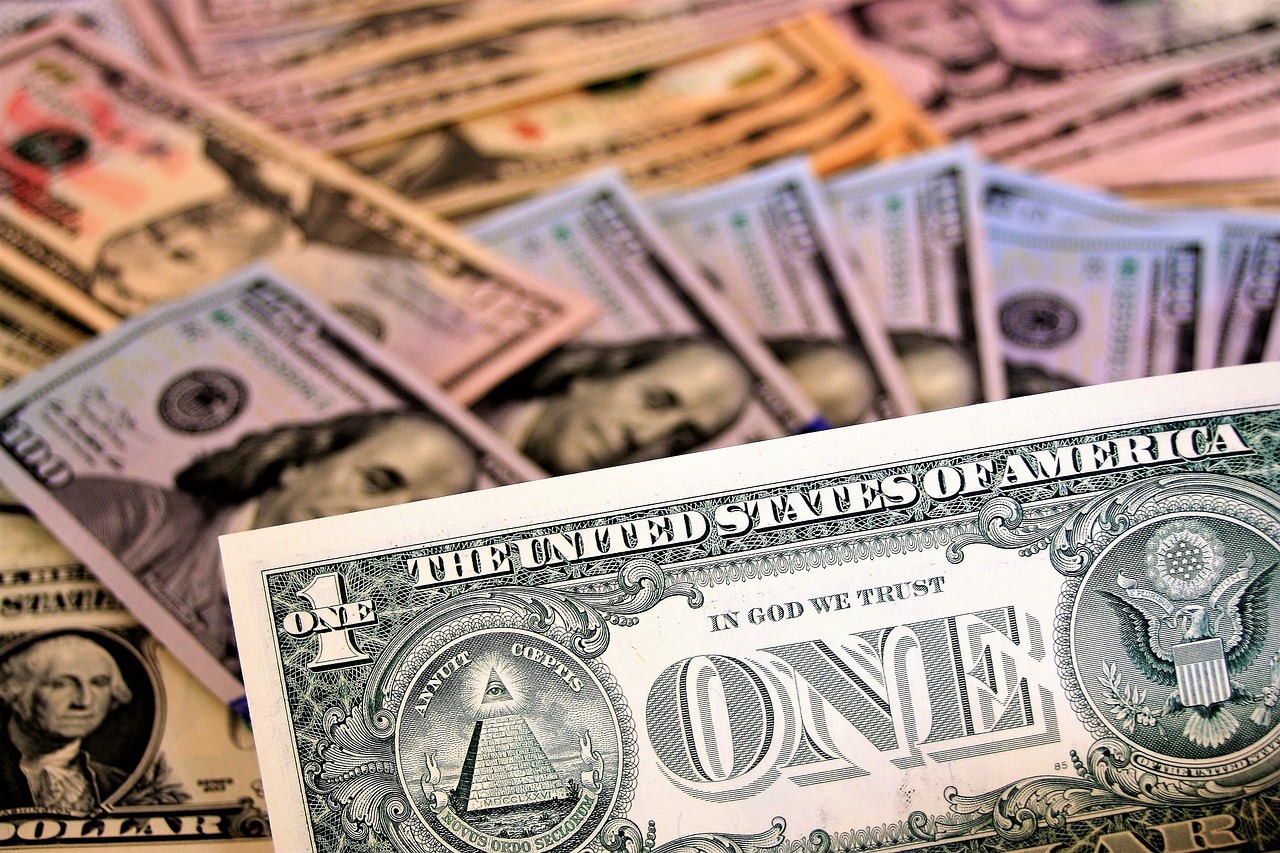Partially thanks to high mortgage rates, the percentage of homebuyers who pay cash has risen. As of September 2023, according to Redfin, 34.1% of U.S. home purchases were made in cash. This is up from 29.5% in September 2022, when mortgage rates were lower.

Redfin analyzed county records across 40 of the most populous U.S. metropolitan areas, going back through 2011. An all-cash purchase is one in which there is no mortgage loan information on the deed.
The Reasons For Rising All-Cash Home Purchases
Let me share one obvious and several not-so-obvious reasons why all-cash home purchases are rising.
1) Rising mortgage rates.
The most obvious reason why the percentage of homes being purchased with all cash is rising is due to the increase in mortgage rates. The average 30-year fixed-rate mortgage almost tripled from about 2.75% in 2020 to roughly 7.35% in 2023. As a result, fewer homebuyers are taking on debt to buy.
Unfortunately, when you pay all cash for a home in a high-mortgage rate environment, you also give up earning high risk-free income. In this current environment, money market funds and Treasury bonds are paying 5% or more. But given mortgage rates are even higher than risk-free income, there is still a net benefit to the all-cash homebuyer.

2) Harder to get a mortgage.
Now for the not-so-obvious reasons why all-cash home purchases are rising.
Ever since the 2008 global financial crisis, lending standards to purchase a home have tightened tremendously. The government forced all banks to raise their tier 1 capital ratio to protect banks from insolvency. Banks have also been much more stringent on whom they lend money to.
For example, the average credit score for an approved mortgage applicant is now over 720, an excellent score. Whereas before the financial crisis, the average credit score for an approved mortgage applicant was closer to 680, a good credit score.
Take a look at the chart below for mortgage originations by credit score. Notice how starting around 2009-2010, the light blue section (borrowers with 760+ credit scores) began to increase.

Given it is harder to qualify for a mortgage due to more stringent lending standards, more homebuyers are purchasing homes with cash. One may surmise that more family members are pooling together financial resources to help a family member buy a home. Or maybe people have more wealth than the government realizes due to stealth wealth.
However, on average, homebuyers with lower credit scores are usually less wealthy than those with higher credit scores.
3) The growth of consulting work.
According to Statista, the number of freelancers in America is now around 73.3 million, or over 40% of the American working population. The percentage of American freelancers continues to increase thanks to technology, work-from-home, a lack of retirement benefits, and company disloyalty.
Ever since the global financial crisis, more Americans have realized the importance of having multiple income streams. Millions of people suddenly found themselves unemployed through no fault of their own. And novel ideas such as getting ahead of an impending layoff by negotiating a severance were born.
I’ve been a proponent of freelance consulting since I left my day job in 2012. If you’re highly motivated, you could earn much more as a freelancer than at your day job and have more flexibility in your schedule. You just won’t get healthcare and retirement benefits.

Much harder to get a mortgage as a freelancer / consultant.
One problem with being a freelancer or consultant is that it becomes very difficult to qualify for a mortgage loan with only 1099 income. I tried in the past and failed.
Banks view freelancers as much riskier income-earners than people with W2 day jobs. If you don’t have at least two years of freelance income, forget about ever getting a mortgage as most banks will want a much longer freelance income track record.
Given the growth of freelancing, the difficulty of getting a mortgage, and the continued increase in Americans desiring to own a home, it’s natural that more freelancers are opting to pay cash.
4) Homebuyers are richer today than in the past.
Despite mortgage rates in 2023 being at 17-year highs, the percentage of homebuyers who pay cash is NOT at a 17-year high. Instead, the percentage is closer to a 9-year high if you look at the chart above. The last time the share of homes bought with cash was at the current 34% was in 1Q 2014.
However, back in 2014, the 10-year bond yield was at about 2.7% versus 4.5% today. This means mortgage rates were about 40% lower in 2014. For the same percentage of Americans to pay cash, despite 66% higher mortgage rates today, implies that cash buyers are relatively richer than before.
Just track the performance of stocks, real estate prices, and other risk assets since 2014. All have appreciated far beyond the pace of inflation. Therefore, Americans who invested in these assets have done well and can more easily pay cash for a house.

As evidence of greater wealth in America, see the Fed’s latest Consumer Finance Survey. The report showed the average net worth of American households is about $1.06 million. Meanwhile, the median net worth of American households is about $192,900. The net worth growth rate for both was about 20% over just three years.
Some buyers are able to make relatively large down payments because they’re using equity from their previous home. However, the share of homes being sold to first-time buyers is declining as it becomes harder to afford a home without selling another one and taking out the equity.
5) Lock in stock market gains and buy real estate before a rebound.
The final reason why more Americans may be paying all cash for a house is to lock in stock market gains. Selling stocks after a rebound to invest in depressed real estate prices is enticing for those who can. Real estate prices generally lag the stock market by about six to twelve months.
Due to high mortgage rates, real estate prices around many parts of the country are depressed. As a result, homebuyers can get better deals. By paying cash, homebuyers can often get an even better deal because there’s more certainty the deal will close once in escrow.
As more investors realize inflation has peaked and mortgage rates will likely go down, there will be increased demand to buy real estate before a potential rebound.
The strength in the S&P 500 is indicating a soft landing and a further decline in interest rates. So more real estate buyers who understand that real estate prices lag the price performance in stocks are buying more prime properties with cash.
Mortgage Bankers Association home price forecast for:
2024: +4.1% (previously 1.1%)
2025: +3.3% (previously +3.2%)
2026: +3.9% (previously +3.5%)
Whether the MBA’s forecasts come true or not is anybody’s guess. However, the dramatic increase in its 2024 home price forecast is something to take note of. If interest rates decline in 2024, it could unleash a lot of pent-up demand to buy property, especially if the S&P 500 stays buoyant.

Share Of Home Sales Using All Cash By U.S. Metro Area
Here is a fascinating table by Redfin that shows the percentage share of home sales using all cash and more.
In San Francisco, where I live, 26% of home sales were paid with all cash. The metro area with the highest percentage of cash buyers is West Palm Beach, Florida, at an impressive 49%.
| U.S. metro area | Share of home sales using all cash | Share of home sales using all cash, YoY (in percentage points) | Share of mortgaged home sales using FHA loans | Share of mortgaged home sales using FHA loans, YoY (in percentage points) | Share of mortgaged home sales using VA loan | Share of mortgaged home sales using VA loan, YoY (in percentage points) |
| Anaheim, CA | 31.7% | 5.9 pts. | 3.5% | -0.7 pts. | 1.7% | -0.8 pts. |
| Atlanta, GA | 41.0% | 1.1 pts. | 20.4% | 2.7 pts. | 7.5% | 0.5 pts. |
| Baltimore, MD | 41.8% | 11.2 pts. | 18.6% | 0.3 pts. | 8.9% | -1.5 pts. |
| Charlotte, NC | 39.4% | 2.9 pts. | 12.9% | 1.9 pts. | 5.5% | -0.9 pts. |
| Chicago, IL | 26.8% | 3.2 pts. | 15.5% | -2.9 pts. | 2.9% | 0.1 pts. |
| Cincinnati, OH | 45.6% | 6.5 pts. | 15.9% | -0.3 pts. | 6.1% | 0.3 pts. |
| Cleveland, OH | 49.2% | 7.4 pts. | 13.6% | -6.4 pts. | 3.5% | -1.5 pts. |
| Columbus, OH | 32.7% | 3.0 pts. | 14.1% | 2.6 pts. | 4.4% | -1.3 pts. |
| Denver, CO | 36.5% | 10.1 pts. | 14.0% | 1.4 pts. | 6.3% | 0.1 pts. |
| Detroit, MI | 38.0% | 3.9 pts. | 20.3% | -6.5 pts. | 3.1% | 0.1 pts. |
| Fort Lauderdale, FL | 40.5% | -0.5 pts. | 17.2% | 4.0 pts. | 3.8% | -0.5 pts. |
| Jacksonville, FL | 46.2% | 3.2 pts. | 15.7% | 0.3 pts. | 16.6% | -2.3 pts. |
| Las Vegas, NV | 33.1% | 0.7 pts. | 22.9% | 2.5 pts. | 9.7% | -2.7 pts. |
| Los Angeles, CA | 22.7% | 3.2 pts. | 15.2% | 1.7 pts. | 2.6% | unchanged |
| Miami, FL | 40.7% | 2.0 pts. | 17.5% | 3.9 pts. | 2.0% | -0.7 pts. |
| Milwaukee, WI | 33.0% | unchanged | 10.6% | 0.3 pts. | 3.6% | -1.1 pts. |
| Minneapolis, MN | 29.7% | 6.5 pts. | 8.8% | -0.5 pts. | 3.4% | -1.0 pts. |
| Montgomery County, PA | 35.0% | 7.6 pts. | 7.6% | -0.7 pts. | 3.0% | -0.8 pts. |
| Nashville, TN | 40.1% | 6.6 pts. | 19.3% | 9.0 pts. | 6.7% | 0.1 pts. |
| New Brunswick, NJ | 33.4% | 6.5 pts. | 12.5% | 0.8 pts. | 2.7% | 0.7 pts. |
| New York, NY | 36.9% | 8.6 pts. | 10.2% | 0.1 pts. | 0.9% | -0.6 pts. |
| Newark, NJ | 26.8% | 7.6 pts. | 14.8% | -2.6 pts. | 2.9% | -0.2 pts. |
| Oakland, CA | 18.0% | 3.9 pts. | 9.3% | 2.7 pts. | 1.7% | -0.5 pts. |
| Orlando, FL | 40.0% | 0.6 pts. | 21.5% | 3.5 pts. | 6.5% | -0.4 pts. |
| Philadelphia, PA | 41.1% | 6.7 pts. | 17.6% | -2.5 pts. | 3.3% | 0.2 pts. |
| Phoenix, AZ | 30.0% | 1.2 pts. | 20.8% | 4.6 pts. | 7.2% | -1.1 pts. |
| Pittsburgh, PA | 41.2% | 13.3 pts. | 17.5% | 2.8 pts. | 4.1% | -1.3 pts. |
| Portland, OR | 24.3% | -0.3 pts. | 13.9% | 3.0 pts. | 4.2% | -1.7 pts. |
| Providence, RI | 24.6% | -2.5 pts. | 25.0% | 2.6 pts. | 6.2% | 0.1 pts. |
| Riverside, CA | 40.7% | 6.0 pts. | 29.6% | 3.6 pts. | 6.5% | 0.6 pts. |
| Sacramento, CA | 26.0% | 5.9 pts. | 15.0% | -0.4 pts. | 5.4% | -1.1 pts. |
| San Diego, CA | 24.9% | 7.0 pts. | 9.6% | 3.3 pts. | 12.0% | -5.6 pts. |
| San Francisco, CA | 26.0% | 5.2 pts. | 1.4% | 0.4 pts. | 0.2% | -0.2 pts. |
| San Jose, CA | 18.2% | 6.3 pts. | 2.4% | 0.1 pts. | 0.9% | 0.4 pts. |
| Seattle, WA | 20.3% | 2.6 pts. | 6.6% | 1.1 pts. | 3.2% | unchanged |
| Tampa, FL | 38.2% | 0.2 pts. | 20.7% | 5.2 pts. | 9.8% | -1.6 pts. |
| Virginia Beach, VA | 23.4% | 2.0 pts. | 14.3% | -0.4 pts. | 41.0% | -0.6 pts. |
| Warren, MI | 35.8% | 4.9 pts. | 9.3% | -4.2 pts. | 4.5% | -0.2 pts. |
| Washington, DC | 26.2% | 5.7 pts. | 13.9% | 0.6 pts. | 15.2% | 0.7 pts. |
| West Palm Beach, FL | 49.0% | 0.8 pts. | 15.5% | 1.4 pts. | 3.0% | -1.8 pts. |
Here’s another fantastic data table from Redfin that shows the median down payments in dollars and percentages by U.S. metro area. More expensive metro areas have higher down payments and vice versa.
With only a $75,000 median down payment in West Palm Beach, Florida, maybe the 49% of homebuyers who pay all cash is not that impressive after all.
| Median down payments, in dollars and percentages | ||||
| U.S. metro area | Median down payment (dollars) | Median down payment (dollars), YoY | Median down payment (percentage) | Median down payment (percentage), YoY, in percentage points |
| Anaheim, CA | $255,000 | 17.0% | 25.0% | 5.0 pts. |
| Atlanta, GA | $38,041 | 22.7% | 10.0% | unchanged |
| Baltimore, MD | $31,295 | 27.3% | 10.0% | 4.1 pts. |
| Charlotte, NC | $57,000 | 48.8% | 15.0% | 5.0 pts. |
| Chicago, IL | $35,775 | 14.6% | 10.0% | unchanged |
| Cincinnati, OH | $21,998 | -2.7% | 10.0% | unchanged |
| Cleveland, OH | $24,250 | 36.2% | 10.0% | 0.6 pts. |
| Columbus, OH | $35,874 | 23.1% | 10.0% | unchanged |
| Denver, CO | $80,000 | -3.0% | 15.8% | 0.8 pts. |
| Detroit, MI | $16,250 | 61.5% | 7.4% | 2.4 pts. |
| Fort Lauderdale, FL | $60,000 | 1.7% | 20.0% | unchanged |
| Jacksonville, FL | $40,032 | 50.8% | 10.0% | 1.2 pts. |
| Las Vegas, NV | $38,000 | 8.6% | 10.0% | unchanged |
| Los Angeles, CA | $169,375 | 6.3% | 20.0% | unchanged |
| Miami, FL | $80,000 | 9.8% | 20.0% | unchanged |
| Milwaukee, WI | $33,029 | 10.1% | 11.9% | 1.9 pts. |
| Minneapolis, MN | $44,985 | 22.6% | 13.0% | 3.0 pts. |
| Montgomery County, PA | $80,000 | 28.0% | 20.0% | 0.7 pts. |
| Nashville, TN | $49,287 | -8.7% | 12.2% | -2.5 pts. |
| New Brunswick, NJ | $100,000 | 15.9% | 20.0% | unchanged |
| New York, NY | $189,900 | 15.1% | 20.4% | 0.4 pts. |
| Newark, NJ | $95,096 | 37.5% | 20.0% | 5.0 pts. |
| Oakland, CA | $210,000 | 9.3% | 20.0% | unchanged |
| Orlando, FL | $45,000 | 1.6% | 11.0% | 0.8 pts. |
| Philadelphia, PA | $21,000 | 1.8% | 8.9% | 3.3 pts. |
| Phoenix, AZ | $46,500 | 1.6% | 10.0% | unchanged |
| Pittsburgh, PA | $16,940 | -12.9% | 10.0% | unchanged |
| Portland, OR | $90,159 | 12.3% | 20.0% | 4.3 pts. |
| Providence, RI | $40,000 | 0.0% | 10.0% | unchanged |
| Riverside, CA | $43,800 | -12.4% | 10.0% | unchanged |
| Sacramento, CA | $91,900 | 25.4% | 20.0% | 5.0 pts. |
| San Diego, CA | $170,000 | 25.9% | 20.0% | unchanged |
| San Francisco, CA | $400,000 | 7.3% | 25.1% | 0.1 pts. |
| San Jose, CA | $378,500 | 18.3% | 25.0% | 5.0 pts. |
| Seattle, WA | $167,172 | 11.4% | 20.0% | unchanged |
| Tampa, FL | $40,330 | 4.3% | 10.0% | unchanged |
| Virginia Beach, VA | $7,380 | 5.4% | 3.0% | unchanged |
| Warren, MI | $33,000 | 34.7% | 10.6% | 0.6 pts. |
| Washington, DC | $54,800 | 49.6% | 10.0% | 1.6 pts. |
| West Palm Beach, FL | $75,000 | 8.7% | 20.0% | unchanged |
Never Thought Of Paying All-Cash For A House Until My 40s
I have now twice paid all cash for a house, once in 2019 and once in 2023. In 2019, at age 42, I purchased a fixer and spent a couple of years remodeling it. It is now a rental.
I will never do another gut remodel in my life! Too painful.
In 2023, I bought the nicest home I could afford after selling stocks and bonds. Since 2022, the home I wanted to buy went down in price by 14% and my stocks rebounded by over 20%. Therefore, I figured paying cash for a home was a decent trade.
Here are the main reasons why I paid cash for two homes:
- Got me a better deal (lower purchase price)
- Enjoy turning funny money stocks and venture capital investments into real assets
- Hate going through the painful mortgage application process and paying a fee to borrow money
- Stocks felt fairly valued when I sold each time
- Finally had a large enough net worth
In my 20s and 30s, I was grinding hard to build my financial nut. Of course I couldn’t pay all-cash for a home. Getting a mortgage was the only way I could get on the property ladder.
Once I accumulated a large enough net worth, investing became more about capital preservation rather than maximum net worth growth. I didn’t want to lose what I had spent 13 years building.
Paying a $10,000 mortgage application fee and then getting a financial lobotomy was no longer appealing. By paying cash, I dramatically simplified the home-buying process, which also reduced stress.
I may not grow my net worth as fast as I could have had I purchased with a mortgage, but I’m OK with that. I’ve got too much responsibility with a family to be chasing fortunes I don’t need.
Reader Questions
Have you ever paid all-cash for a house? If so, why? Do you think the share of homebuyers who pay all cash will ever surpass the peak of 37% achieved in 2013?
If you want to dollar-cost average into a weak housing market, check out Fundrise. Fundrise manages over $3.3 billion for over 400,000 investors investing in the Sunbelt region where valuations are lower and yields are higher.
Listen and subscribe to The Financial Samurai podcast on Apple or Spotify. I interview experts in their respective fields and discuss some of the most interesting topics on this site. Please share, rate, and review!
For more nuanced personal finance content, join 60,000+ others and sign up for the free Financial Samurai newsletter and posts via e-mail. Financial Samurai is one of the largest independently-owned personal finance sites that started in 2009.
Source link












